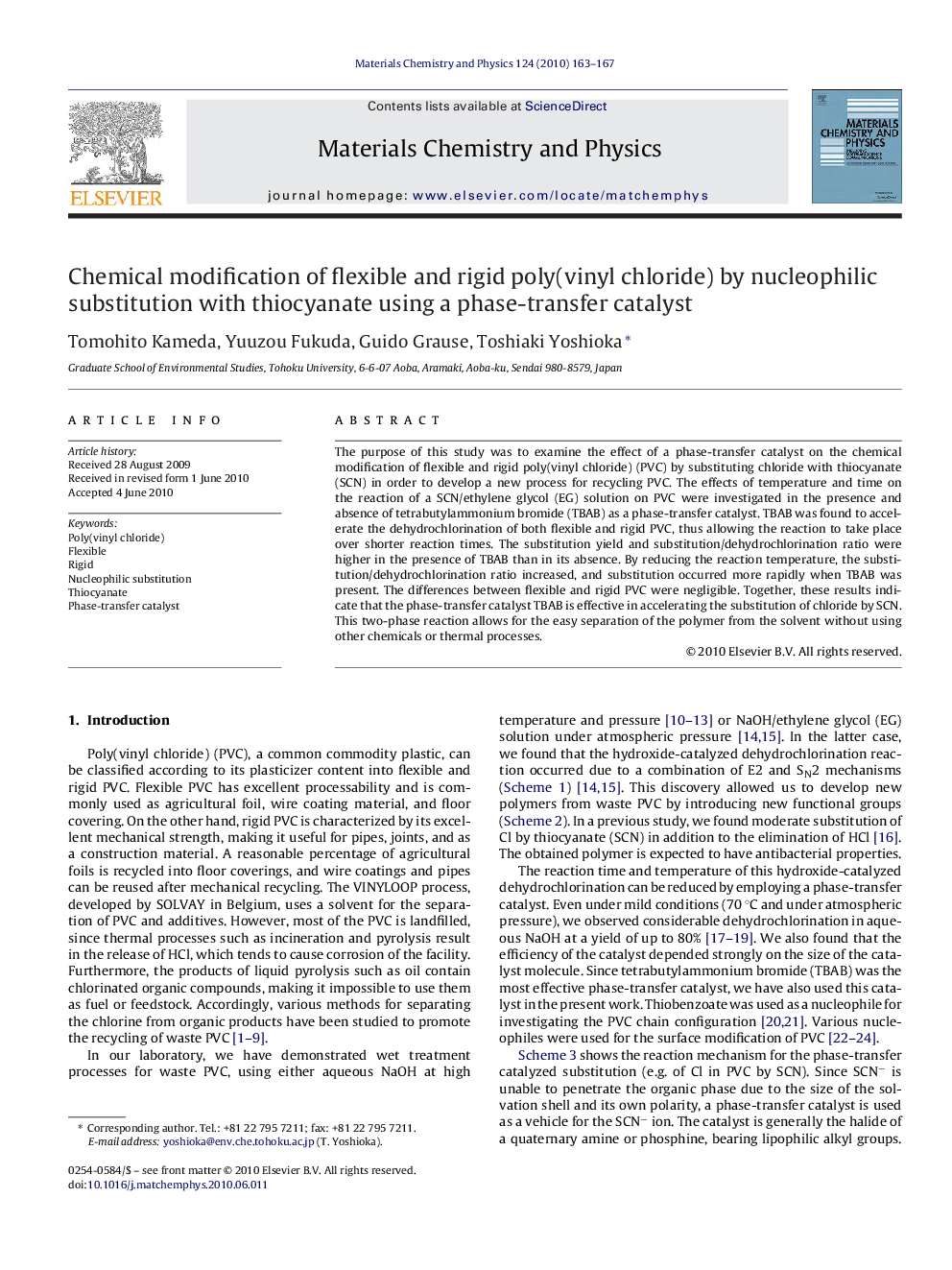| Article ID | Journal | Published Year | Pages | File Type |
|---|---|---|---|---|
| 1524716 | Materials Chemistry and Physics | 2010 | 5 Pages |
Abstract
The purpose of this study was to examine the effect of a phase-transfer catalyst on the chemical modification of flexible and rigid poly(vinyl chloride) (PVC) by substituting chloride with thiocyanate (SCN) in order to develop a new process for recycling PVC. The effects of temperature and time on the reaction of a SCN/ethylene glycol (EG) solution on PVC were investigated in the presence and absence of tetrabutylammonium bromide (TBAB) as a phase-transfer catalyst. TBAB was found to accelerate the dehydrochlorination of both flexible and rigid PVC, thus allowing the reaction to take place over shorter reaction times. The substitution yield and substitution/dehydrochlorination ratio were higher in the presence of TBAB than in its absence. By reducing the reaction temperature, the substitution/dehydrochlorination ratio increased, and substitution occurred more rapidly when TBAB was present. The differences between flexible and rigid PVC were negligible. Together, these results indicate that the phase-transfer catalyst TBAB is effective in accelerating the substitution of chloride by SCN. This two-phase reaction allows for the easy separation of the polymer from the solvent without using other chemicals or thermal processes.
Keywords
Related Topics
Physical Sciences and Engineering
Materials Science
Electronic, Optical and Magnetic Materials
Authors
Tomohito Kameda, Yuuzou Fukuda, Guido Grause, Toshiaki Yoshioka,
